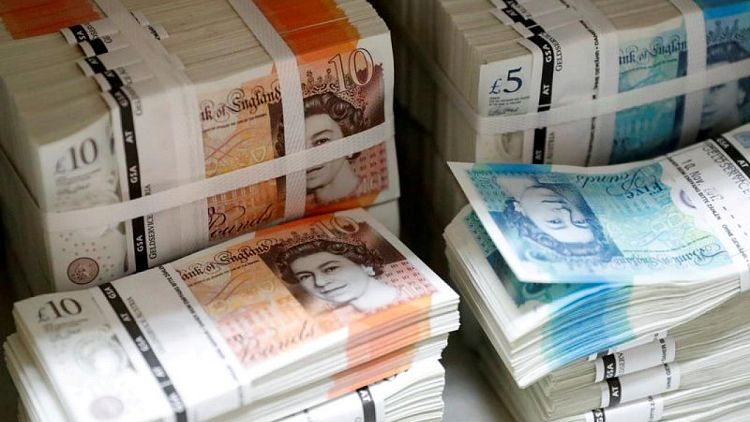By Ritvik Carvalho
LONDON - The pound dipped for a second consecutive day against a broadly stronger dollar on Tuesday and hit its lowest in more than six weeks against the euro, with most of the losses coming after the British government set out a plan to raise taxes.
Prime Minister Boris Johnson unveiled plans to raise taxes on workers, employers and some investors to try to fix the health and social care system, angering some in his governing party by breaking an election promise.
Johnson outlined what he described as a new health and social care levy, which will see the rate of National Insurance payroll taxes paid by workers and employers rise by 1.25 percentage points. The same increase will be applied to the tax on shareholder dividends.
Sterling, already trading lower on the day, dropped as much as 0.5% against the dollar to $1.3768. By 1452 GMT, it traded down 0.4% at $1.3782.
It fell to its lowest against the euro since July 21, down 0.2% at 86.14 pence, and last traded 0.1% lower at 85.94 pence.
"We are seeing the narrative of the (economic) recovery process being tested by a tax hike which potentially could take liquidity or money out of the system, so that newsflow isn't particularly helpful," said Jeremy Stretch, head of G10 FX strategy at CIBC World Markets.
Hawkish comments from BoE policymaker Michael Saunders did not have a sizeable impact on the pound. Saunders said the central bank may need to raise interest rates next year if growth continues and inflation becomes stickier.
"I would assume that the market sees Saunders as an outlier on the MPC (Monetary Policy Committee), thus feels no need to reprice hawkishly based on what he's said," said Michael Brown, senior market analyst at Caxton FX.
Bets that Britain's rapid pace of COVID-19 vaccinations would lead to a faster economic reopening and rebound had earlier propelled sterling to one of the best performing G10 currencies this year.
But recent surveys have hardened indications of slowing economic growth. They also reveal that economic momentum is stuttering under the impact of Brexit, global supply chain issues and COVID-19 isolation rules.
"The pound's outlook could remain relatively bleak also as the growth-negative impact of the lingering post-Brexit uncertainty and the pandemic starts to manifest itself, while the government support for the labour market is due to expire at the end of this month," said Valentin Marinov, head of G10 FX research at Credit Agricole.
"In particular, supply-chain and labour market disruptions could fuel further increases in cost-push inflation while hurting the economic recovery."
On Monday, sterling dipped on the back of a survey of purchasing managers that showed the British construction industry grew last month at its weakest pace since the lockdown of early 2021, hit by a severe shortage of building supplies.
Friday PMI data had showed growth in the services sector slowed in August compared with July.
